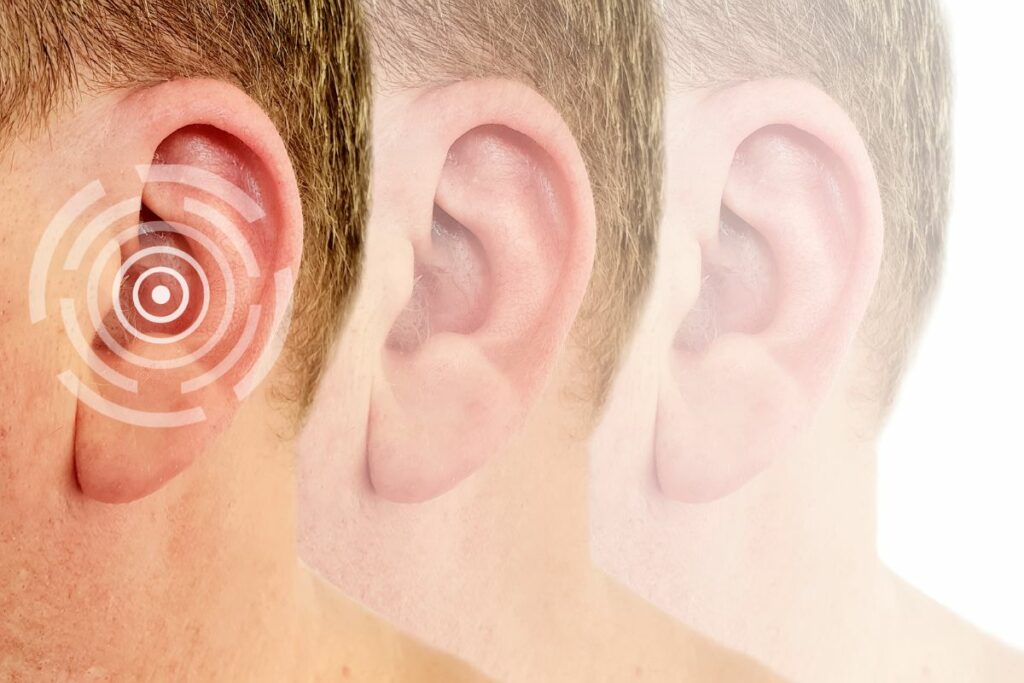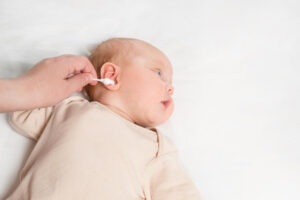Introduction
According to WHO estimates, nearly 430 million people around the globe and 63 million people in India are suffering from hearing problems. In them, children aged 0-14 have the highest percentage. Hearing loss can affect children’s physical activity and the country’s economic growth. Many treatment options help to regain hearing capacity. Consult an ENT specialist and get treated to hear the world
Definition
A person is said to be hearing impaired when they cannot hear normal speech or sounds less than 20 decibels in both ears. Hearing loss can affect one or both ears. The affected person has trouble hearing in normal conversations or requires high sounds. Any damage or non-functional organs in the ear also leads to hearing loss. Hearing loss can be mild, moderate, severe, profound, permanent, or temporary. Different hearing loss treatment options are available, consult your ENT specialist.
Prevalence and impact of hearing loss
Hearing loss is an invisible problem that we are dealing with. By 2050 at least 2.5 billion people will have some degree of hearing loss, and more than 700 million people will suffer from hearing loss. The prevalence of hearing loss is high in children and increases with age in adults older than 60. Unaddressed hearing loss in children will create a barrier to listening, learning, education, communication and employment. The quality of life in adults is disturbed, and they feel isolated from their families.
Identifying hearing loss in the early stages can mitigate the impact of the hearing loss. Hearing loss treatment options include advanced teaching methods, specialised sign languages, hearing aids, cochlear implants and treatment for ear will benefit children and adults’ hearing.
Types of Hearing Loss
Hearing loss might be temporary or permanent. Hearing loss treatment options varies depending on the type of hearing loss. There are four types of hearing loss conditions depending on the degree of hearing loss they are:
- Mild
- Moderate
- Severe
- Profound hearing loss
Let us know the difference between temporary and permanent hearing loss
Permanent vs temporary hearing loss
Permanent hearing loss:
Permanent hearing loss conditions and symptoms differ from temporary hearing loss. The causes of permanent hearing loss include congenital disabilities, head injuries, ageing, exposure to loud sounds, ototoxicity, genetic conditions and ignoring ear infections. The affected person can not acquire a normal hearing condition.
Temporary hearing loss:
In some conditions, hearing loss is mild and will go away after some time. It is said to be temporary hearing loss. Ear infections, accumulation of earwax, sudden exposure to loud noise, fluid buildup in the ear, nasal infections, and perforated eardrums lead to temporary hearing loss. The symptoms of temporary hearing loss are identified easily, and timely treatment will revert normal hearing capacity.
Mild, moderate, severe, and profound hearing loss

Mild Hearing Loss
In mild hearing loss, a person can not hear low sounds like a clock ticking and whispering. The sound decibels of less than 25dB are hard to hear, and they need to be more attentive while hearing.
Moderate Hearing Loss
It is called moderate hearing loss if a person can not hear normal speech or talk at normal levels. They can hear the sound but can not recognise it fully. One can not hear sound decibels <30 or 40.
Severe Hearing Loss
A person finds it difficult to understand sounds and noises at normal levels. One can hear loud sounds only. Hearing loss is more than 71dB.
Profound Hearing Loss
With profound hearing loss, one can not hear everyday sounds. In older people and children with congenital disabilities, profound hearing loss is usually seen.
Sensorineural hearing loss
Sensorineural hearing loss is caused when the inner ear or hearing nerve is damaged. It is a life-threatening and permanent condition. One can get rid of it with proper treatment in the initial stages.
Treatment Options for Hearing Loss
There are different treatment options for different hearing loss conditions. They are:
- Hearing aids
If hearing loss is mild, moderate or caused by damage in the inner ear or ear infection, then a hearing aid is the best choice to restore hearing. An ENT doctor will examine and suggest audiometry. Audiometry results will help doctors to suggest the hearing aid type.
A hearing aid is a small electronic device placed behind the ear. It amplifies the sounds and sends them to the inner ear. The amplified sound signals are then transferred to the brain, which recognises the sounds. With hearing aids, one can freely communicate and lead their life without other help
- Cochlear implants
Doctors suggest cochlear implant surgery when the hearing capacity of the patient does not improve with hearing aids. A cochlear implant is also recommended for people having hearing loss in both ears and other medical issues affecting hearing aid surgery.
A cochlear implant is an electronic device which bypasses the damaged nerves in the ear and stimulates the hearing nerve. With cochlear implant surgery, an ENT specialist will fix it in the ear. Cochlear implants will not restore normal hearing but will help understand the sounds more than hearing aids.
- Assistive listening devices
Assistive listening devices are also known as Assistive devices, ALDs or Auxiliary aids. ALDs will amplify sound and help in daily conversations, speech, television, and meetings. These devices will provide communication accessibility and help in effective communication. Different types of ALDs are used for different purposes:- Hardwired Assistive
- Listening Devices
- Frequency-Modulated (FM) Assistive Listening Devices
- Infrared Assistive Listening Devices
Latest Hearing loss treatment methods and technologies
- Amplifiers: personalised handheld amplifiers with microphones are created to amplify voices. These devices help people with hearing loss hear sounds from long distances.
- Amplified telephones: those who find it difficult to communicate over the phone need amplified telephones. Amplified telephones will amplify telephone volume and can hear ringing and sounds from the telephone.
- TV Streamers: Infrared (IR) television headsets are there to adjust your TV volume. With these headsets, you can hear audible voices without disturbing your loved ones.
- Stem cell research and gene therapy: Researchers are developing a gene therapy to treat age-related hearing loss. Using gene therapy, researchers will transplant the damaged or affected cells in the ear. With stem cells, they are trying to repair damaged cells to provide a natural hearing. With this method, scientists solve hard-hearing problems.
- Drug therapy: Drug therapy depends on neurotrophic factors. It helps in repairing the ribbon synapse, regrowth of auditory neuron fibre and preventing loss of primary auditory neurons. A high dosage of drugs with slow release and long-term administration is needed in drug therapy. This advanced treatment option is mainly to address Sensorineural hearing loss.
- Auditory Training and Rehabilitation: auditory training and rehabilitation will help people with hearing aids or cochlear implants. An audiologist, speech-language pathologist, or ENT doctor will provide this training. This training will enhance hearing capacity after treatment and reduce symptoms like listening fatigue.
Considerations for Choosing a Hearing Loss Treatment
Before gearing up for surgical treatment, consult Ear Surgeon and clear your doubts. Ask your doctor the following questions.
Knowing the severity of your hearing loss, you can keep an eye on it and maintain the level of your hearing loss within limits. Healthy habits like exercising, walking, meditation or yoga will help you. You can track your hearing loss once a year through regular checkups.
The cost of the surgery mostly depends on the type of surgery. You can pay the full amount for the surgery or utilise your hospital insurance.
Check whether the hospital will accept your insurance and can claim your full hospital expenses. Know more here – https://raosentcare.com/insurance-department/
Myringotomy grommet surgery is performed under general anaesthesia, so patients do not feel pain during the surgery. Post surgery, if pain persists antihistamines and painkillers are advised to relieve the pain.
Tips for managing and preventing hearing loss
Following some preventive measures can prevent hearing loss and maintain good hearing.
- Avoiding loud music and reducing noise exposure
- Inserting earphones/ earbuds for more than 60 minutes
- Swimming without any ear protection
- Cleaning ear with excess water
- Air travel
- Blowing your nose will affect your middle ear severely, so avoid it.
- Use a shower cap while taking a head bath.
- Avoid inserting things into the ear canal.
- Quitting smoking and alcohol
- Keeping diabetes in control
- Beware of medicines that impact hearing
Conclusion
Whether your hearing loss affects one or both ears, its impact on your personal and professional life is unpredictable. You will rely on others or feel isolated or depressed because of hearing loss. Hearing loss will affect the quality of your life. Getting hearing loss treatment will help you to lead a healthy and quality life. After the hearing loss treatment, you can reconnect with the world. You will be strong emotionally, mentally and physically. You can communicate and hear your loved ones and cherish the moments through your ears.

Why consult EarSurgeon, Dr. Shree Rao?
Dr. Shree Cuddapah Rao is acclaimed as one of the best pediatric ENT specialists in Hyderabad. With 10+ years of deep domain experience in the field of ENT, she is the director at Dr. Rao’s ENT Super Specialty Hospital. She underwent specialized training in Rhinoplasty / Facial Plastic surgery at Singapore General Hospital, Singapore. She also underwent advanced training in cochlear implant surgery under Padmashri Dr. Milind V Kirtane and had a Fellowship in a cochlear implant. Having performed over 200 successful cochlear implants for patients worldwide, Dr. Shree Cuddapah Rao is also the recipient of several prestigious accolades in the domain of ENT. Dr. Shree Rao is one of the best ent doctor in hyderabad, to book an appointment click here.
Are you looking for
then you have landed at right place!







